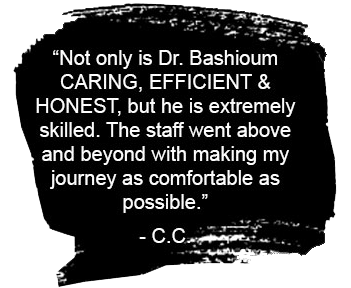What My Mother Taught Me
May 12th, 2009
Almost twenty years ago a 73 year old woman approached me regarding upper eyelid surgery. She had lost her husband some 5 years prior. Having completed her grieving, she was ready to become socially active again. I knew she had grown up during the Great Depression on a farm in western Pennsylvania. She had been a nurse while her deceased husband had been an iron worker for 30 years. Their entire life had been very frugal and simple. They had retired to Yuma, Arizona.
She had a minor heart condition and needed cataract surgery. I didn’t believe cosmetic surgery was “right” for her, so I insisted she proceed with cataract surgery. She completed cataract surgery in both her eyes, following all the after-care instructions. In the interim, she began talking about not only eyelid surgery but also face lift, forehead lift and lip chemical peels. She finally insisted on having cosmetic surgery after I had deflected her request some three years earlier. Now she wanted it all, if I didn’t do it she would go elsewhere!
I took her aside and said, “Mother, I think I understand. Here is what we can do and it will take some time.” Over the next year or two my mother had the works, one procedure at a time. She is now 93 years old and has been sharing her life with a younger man (85 years old) for the past 19 years. It was having a new man her her life that had kindled her desire to ditch the wrinkles. She not only looked younger, but she also had a renewed interest in living life.
This experience taught me many things. Age is a relative term and it is unclear why something starts to bother us, when it hasn’t been an issue before. Life changes may contribute to embracing new perspectives and perhaps lead to actively seeking some type of transformation. You are never too old to want to look your best!
Cosmetic Surgery Safety
May 11th, 2009
The most important person during cosmetic surgery is you, the patient. As with any type os surgery, elective cosmetic surgery always has risks. It is our (surgeon and patient) combined responsibility to do all we can to reduce these risks to a minimum. Safety is our top priority.
Our patients asked to complete a pre-operative history and physical. Having an impartial physician conduct the examine helps to evaluate patients for possible medical conditions before considering surgery and it is a very important step. More than once, we have chosen to reschedule surgery based on a primary care physician’s findings. Medical conditions which are not well controlled, or go undiagnosed, pose a risk of anesthetic and surgical complications.
There are a number of important items on the “to do and not to do” list before your surgery. Each surgeon usually develops their own instructions based on philosophy and experience. These instructions are based on reducing the risk of problems during and after surgery. The main elements that I worry about the most are bleeding and infection. We ask our patients not to take aspirin or any drugs which interfere with platelet function. Of course, anticoagulants cannot be used before cosmetic surgery. Patients are also instructed to shower both the night before and the morning of surgery. These simple precautions are quite effective in minimizing bleeding and infection.
All medical conditions must be under perfect control. All prescription medications must be disclosed and taken as directed. High blood pressure, if not well controlled, will result in excess bleeding during surgery and increase the risk of unwanted blood collections after surgery. Some heart medications may impact risks of anesthetic complications.
Over-the-counter medications should generally be avoided, particularly excess vitamin use. Limiting supplements to a simple multi-vitamin dosage is sufficient for a few weeks before surgery. Napropathic or herbal preparations must also be stopped, as their composition and effects are sometimes unclear. Finally, all illicit or illegal drugs must absolutely be avoided. They can lead to fatal interactions with anesthetic drugs.
Please follow all pre-op and post-operative instructions given to you by your physician. You are considered to be part of the “team” and it is our goal at my office to obtain the best result possible.
